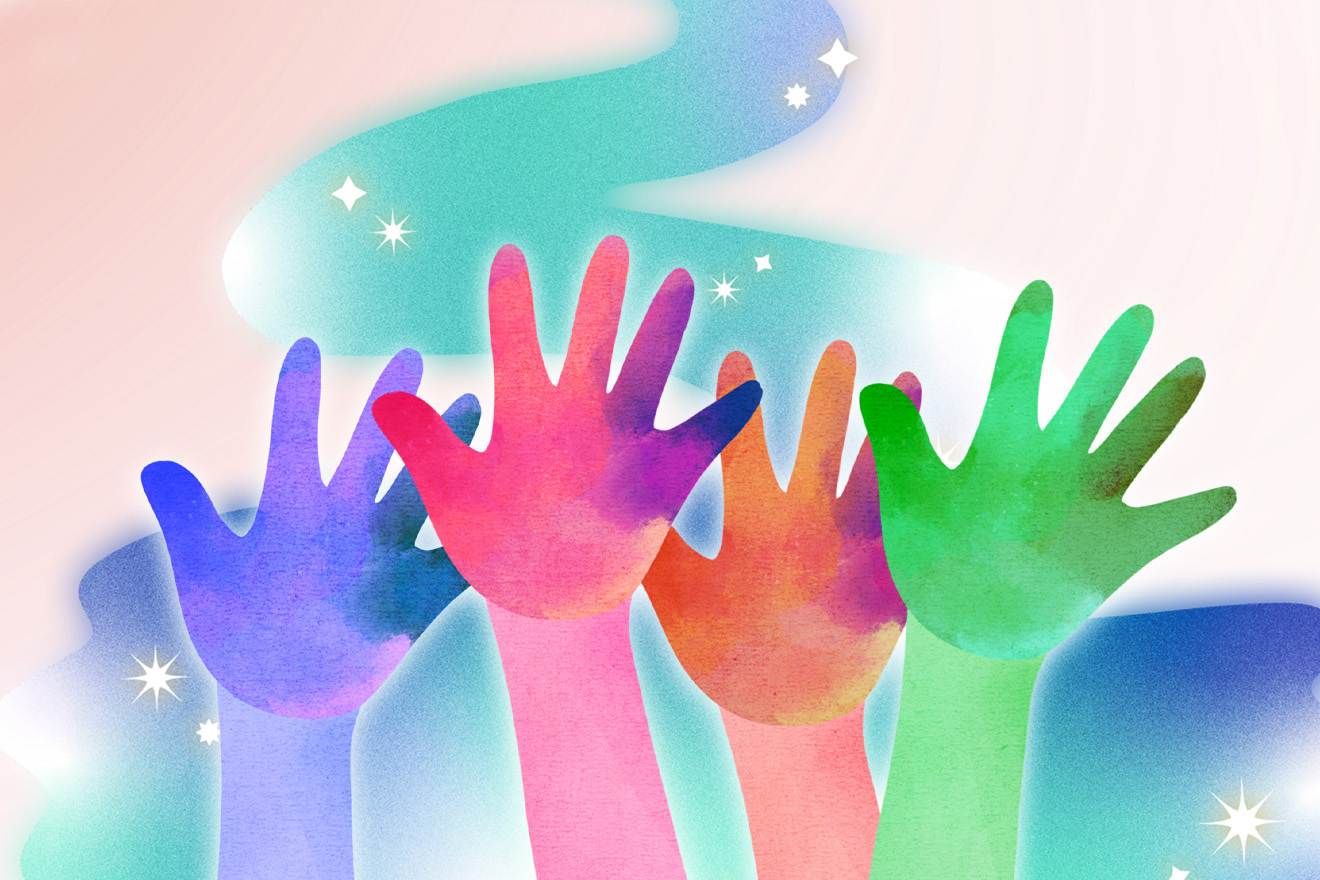Are you passionate about psychedelic healing, but don’t have a background in therapy or medicine? You don’t have to be a therapist or doctor to be an asset on the psychedelic co-therapy team. Psychedelic facilitators and volunteers are essential in helping patients through their entheogenic journey. Here’s how to get involved in psychedelic volunteering and advocacy.
Psilocybin and MDMA are closer than ever in the pipeline toward FDA approval. Once these therapies are approved, it’s likely we’ll see a large number of patients looking for psychedelic therapy. But it’ll take more than therapists and doctors to bring psilocybin and MDMA-assisted therapy to the masses.
The psychedelic co-therapy team will be an interdisciplinary group of clinicians and patient advocates who work together to give patients safe and effective therapy. Here’s who we’ll need on the co-therapy team, according to the Multidisciplinary Association for Psychedelic Studies (MAPS):
- Medical Doctors and Doctors of Osteopathic Medicine, specifically with specialties in psychiatry, palliative, and hospice care. These physician leaders will supervise whole-treatment care plans, manage psychiatric medications, and prescribe therapy.
- Psychedelic therapists who have specific training in harm reduction and integration. Therapists will likely be present during psychedelic sessions, and they’ll help patients process their experiences afterward.
- Psychedelic nurses, who will have specific training in psychedelic safety. Nurses may be present for therapy, and they may guide patients and answer questions during the therapy process. Advanced Practice Registered Nurses and Doctorates in Nursing Practice may also prescribe therapy and manage medications.
- Certified Psychedelic Facilitators with training from accredited organizations. A psychedelic facilitator will assist both the patient and the clinician team throughout the psychedelic therapy process. These important team members may have a similar role to nurses’ assistants and doulas. Facilitators will have essential training and knowledge, but they won’t need to be medically licensed to contribute to patient care.
What to learn more about the co-therapy team? Check out our guide.
Follow your Curiosity
Sign up to receive our free psychedelic courses, 45 page eBook, and special offers delivered to your inbox.The co-therapy team represents several ways for clinicians and non-clinicians to get involved in helping patients heal. Psychedelic Support helps educate members of the co-therapy team on how to keep patients safe, integrate their experiences, and be responsible care providers. But we need help to deliver these cutting-edge techniques to patients. We’re excited for non-clinicians to get involved in psychedelic therapy, and we hope you’ll join us in educating yourself on these fascinating substances.
If you’re interested in becoming a psychedelic facilitator or volunteer, you’ve come to the right place. There are a few different ways to get involved in MDMA and psilocybin-assisted therapy. Let’s go over the most common topics people ask us about.
Psychedelic Volunteering: Get Involved in Current Clinical Trials
If you’re interested in contributing to psychedelic medicine as a patient, there are clinical trials you may be able to join. There’s never been a better time to get involved in research, because there are more trials going on now than ever before. And there is a need for people willing to participate – people like you!
Check out these current trials that are currently recruiting participants:
- Knoxville, Tennessee: MAPS is recruiting healthy participants for a study on the bioavailability of MDMA. Learn more here.
- New York City, New York: MAPS is recruiting veterans with chronic PTSD for research comparing two- versus-three active MDMA sessions. Get more information here.
- San Francisco, California: MAPS is enrolling by invitation to research the long-term safety and effectiveness of MDMA-assisted therapy to treat PTSD. See if you qualify for this trial here.
These clinical trials are actively recruiting, and that’s just the beginning. Contact a study site near you to learn more about the recruiting process. This typically includes a screening form to see if you qualify to participate, then a phone interview. To get up-to-date information on current clinical trials, and to learn about the trials process, head over to our trial guide.
But what if you want to help others experience therapy, not just experience it yourself? Let’s talk about how to become a psychedelic facilitator.
How to Become a Psychedelic Facilitator
The psychedelic facilitator role is the best way for people without therapy or medical backgrounds to get involved in the psychedelic therapy model. This person may take direction from the therapist during psychedelic sessions. In some cases, they may supervise patients directly. Facilitators will need certification and training to practice, but the qualifications vary by state.
If you’re interested in becoming a psychedelic facilitator, we recommend educating yourself in harm reduction strategies. Keeping patients safe will be your first priority as a facilitator. Harm reduction philosophies include1:
- Limiting the harm caused by substance use and other dependencies.
- Understanding that a client’s medical history and medication regimens will influence their care.
- Emphasizing client autonomy and personal rights. This includes respecting their values and preferences and helping clients create their own plan for healing.
- Clients do not have to be abstinent to seek help and healing.
Harm reduction philosophies make up the building blocks for psychedelic therapy. But individual states will have more specific requirements for facilitators.
For example, Oregon’s ballot measure 109 will soon start accepting applications for psilocybin facilitators. In order to apply, facilitators will need to complete a training program on the list of approved curriculums. See that list here.
Oregon’s list of approved training programs is quite short for now. Many of these programs are priced at $10,000 or more. With time, more programs will be approved and the cost for certification in psilocybin-assisted facilitation will go down. As it stands, the cost barrier for certification will likely prevent many people from participating in this field.
Unfortunately, in-person facilitation isn’t an available role in all states. If you’re a facilitator, but you can’t move to a state where psychedelics are legal, you can still help patients. Through the Fireside Project, you can offer peer-based emotional support by phone or text. And by advocating for psychedelic therapy on the local level, you can move this medicine forward in your area. Let’s talk about being a legal advocate for psychedelic therapy.
How You Can Be an Advocate for Psychedelic Therapy
There are movements in many cities and states to decriminalize and even legalize psychedelics like psilocybin, LSD, and MDMA. Decriminalization policies in Denver, cities in California, and Washington, D.C. have allowed access to treatments in those areas. By advocating at your state, county, and city level, you can have a bigger impact on policy change.
More and more cities and states are passing pro-psychedelic legislation. In November, Colorado passed the Natural Medicine Health Act of 2022. This new law will legalize psychedelic therapy through the state of Colorado for adults ages 21 years and up. This program is scheduled to launch mid-2026, and it signals the second state to pass pro-psychedelic therapy legislation, after Oregon in 2020.
Other cities have opened access to certain psychedelics, but haven’t gone so far as to sponsor therapy. Residents of Washington, D.C. can now have psilocybin mushrooms delivered to their door thanks to a 2020 measure that de-prioritized enforcement policies. This came after the first-ever ballot initiative for decriminalization, and 76% of voters were in favor2.
Pay attention to ballot measures in your area, and do research on your local political candidates to find their views on psychedelic legalization. Call and email your local representatives to tell them that decriminalization and legalization is important to their constituents. Advocacy on the local level will move pro-psychedelic legislation forward in states and cities. We’re also optimistic about FDA approval and legalization on the federal level in the next few years.
Learn more about FDA approval for psychedelic therapy here.
Psychedelic Medicine Needs You!
There are a lot of ways to get involved in psychedelic medicine, right now. Volunteering for clinical trials, getting facilitator training, and being an advocate on the local level are all great ways to contribute to this important movement. If you’re interested in volunteering, facilitating, or advocating for psychedelic therapy, you’ve come to the right place. Psychedelic Support has the resources to help you get where you want to go.
To learn more about psychedelic clinical trials, visit our guide. If you’re interested in evidence-based education, get started on our free courses page. And if you want information about fresh courses, new research, and thought leadership in psychedelic medicine, subscribe to our newsletter.
References
- Gorman I, Nielson EM, Molinar A, Cassidy K, Sabbagh J. Psychedelic Harm Reduction and Integration: A Transtheoretical Model for Clinical Practice. Front Psychol. 2021 Mar 15;12:645246. doi: 10.3389/fpsyg.2021.645246. PMID: 33796055; PMCID: PMC8008322.
- Washington, D.C., Initiative 81, entheogenic plants and fungus measure (2020). Ballotpedia. (n.d.). Retrieved December 4, 2022, from https://ballotpedia.org/Washington,_D.C.,_Initiative_81,_Entheogenic_Plants_and_Fungus_Measure_(2020)







